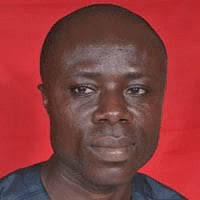FIND OUT: THE INCREASE OF STROKE AMONGST THE YOUTH - NEUROSURGEON
A stroke occurs when part of the brain loses its blood supply and stops working. This causes the part of the body that the injured brain controls to stop working.
A stroke also is called a cerebrovascular accident, CVA, or "brain attack."
The types of strokes include:
Ischemic stroke (part of the brain loses blood flow)
Hemorrhagic stroke (bleeding occurs within the brain
Dr. Teddy Totimem, a Neurologist at the University of Ghana Medical Center has stated that, the more a person sit uncomfortably, the more that person attract stroke.
He was interviewed to find out the reasons for the increase of stroke amongst Ghanaian youth.
A lot of Ghanaian young men and women are getting stroke which was in the early days presumed to be for the aged.
The table has turn and now more youth are getting the defect.
Speaking to the Neurosurgeon to tell us what has accounted for the recent change making more youth get the sickness, Dr. Teddy said lack of exercise is one of the numerous causes.
He said, one may sit in car for long period, sit in traffic jam for hours, gets to work place and also sit for hours. After close of work, he/she will pass through the same process to get home.
He said, it's put pressure on the muscles and becomes unable to relax and even diaphragm refused to take its doom shape which affect the body and cause stroke to the person in some period.
He encouraged all to do more exercise to put the body into active role.
Potential Stroke People may experience:
Muscular: difficulty walking, instability, paralysis with weak muscles, problems with coordination, stiff muscles, overactive reflexes, or paralysis of one side of the body
Visual: blurred vision, double vision, sudden visual loss, or temporary loss of vision in one eye
Speech: difficulty speaking, slurred speech, or speech loss
Whole body: fatigue, light-headedness, or vertigo
Limbs: numbness or weakness
Sensory: pins and needles or reduced sensation of touch
Facial: muscle weakness or numbness
Also common: difficulty swallowing, headache, inability to understand, mental confusion, or nystagmus.
Contact a Neurosurgeon/Neurologist for deep understanding.
Story by: Filasco DeGeneral



Comments
Post a Comment